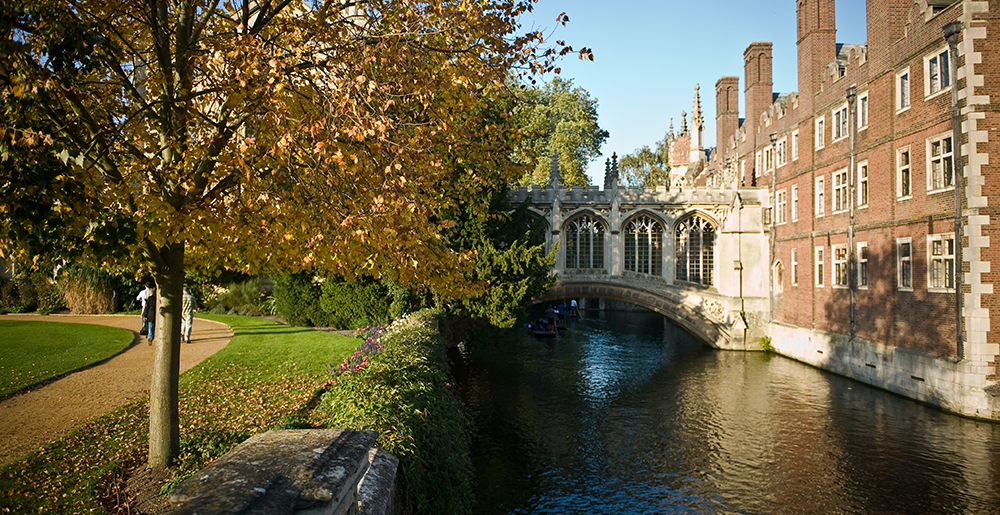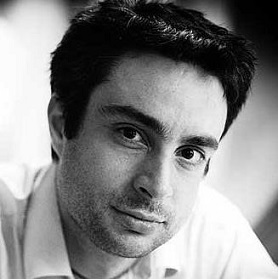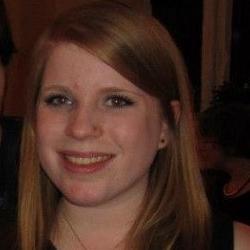Candidates for the BBSRC DTP at Cambridge come from a variety of different backgrounds - entering directly from university, industry or from a career in an area outside of science.
Research themes and topics within the programme are expansive - within the cohort, you will have the opportunity to interact and form relationships with colleagues who specialise in different areas.
For more information, please see the student profiles below.
-
Alzbeta (Beth) Cardova (2014 cohort) - Department of Veterinary Medicine
-
Hamish Symington (2017 cohort) - Department of Plant Sciences
-
Josie Gaynord (iCASE 2016 cohort) - Department of Chemistry
Alzbeta (Beth) Cardova (2014)Department of Veterinary MedicinePublications: Genetic human prion disease modelled in PrP transgenic Drosophila. Electrochemical and optical study of metallothionein interactions with prion proteins. Bio: 2015 – present: PhD in Bioscience (BBSRC DTP), Department of Veterinary Medicine, University of Cambridge, UK 2014 – 2015: MRes in Bioscience (BBSRC DTP), Department of Veterinary Medicine and Institute of Metabolic Science (MRL), University of Cambridge, UK 2012 – 2014: MSc in Animal Biotechnologies, Mendel University in Brno, Czech Republic 2009 – 2012: BSc in Molecular Biology and Genetics, Masaryk University, Czech Republic |
|
|
As an EU student, I was really lucky to get in to the BBSRC DTP programme - it has helped me to finance my PhD and enabled me to become part of the great scientific community here in Cambridge.
I first arrived at the University of Cambridge for a three-month summer research internship. I was really impressed by the professionality and friendliness of everyone involved, and the scientific knowledge and helpfulness of my supervisors. I knew I would like to pursue a career in science, therefore, I applied for the PhD position in Cambridge as well as for the funding by BBSRC DTP. Fortunately BBSRC programme enabled me to continue with my studies and take advantage of everything Cambridge has to offer. The collegiate system, interdisciplinary environment and more specifically, the structure of the BBSRC programme (with two different rotation projects and a professional internship PIPS). The rotations allowed me to work on two completely different projects, developing a range of new skills in a really short time! In the final year of my PhD, I left the lab to take part in PIPS. This was a great, eye-opening experience as I have always thought that my future lies in academia. After my PIPS placement, at Acidophil (a biotechnology start-up company), I changed my mind and decided that the commercial setting of science is something I really enjoy being part of and the skills I developed during my PhD can be useful in other ways. I have no idea what the future holds for me, however, I am sure I would like to try combining my scientific knowledge with the biotech-business interests. |
|
Hamish Symington (2017)Department of Plant SciencesORCID ID: https://orcid.org/0000-0002-5360-7979 Bio: September 2017-present: PhD in Bioscience (BBSRC DTP), Department of Plant Sciences, University of Cambridge 2008-2016: Director, Light Blue Software Ltd, photography business software company 2008-2012: Freelance graphic designer 2005-2008: Marketing Designer / Marketing Design Manager, Cambridge University Press 1999-2002: BA in Natural Sciences (Biochemistry), University of Cambridge |
|
|
I studied Biochemistry at the University of Cambridge, and graduated in 2002. Between then and starting on the DTP in 2017, I trained as a graphic designer and software developer, running an independent software company for a number of years.
I have kept honeybees for a number of years and wanted to return to science to study plant-pollinator interactions; Beverley Glover's lab in the Department of Plant Sciences is the perfect place to do that. Even though I knew where I wanted to study for my PhD, I found a second rotation useful to see how things are done in another lab; I studied cytochrome c6A in Chlamydomonas algae in Chris Howe's lab in Biochemistry. For my rotation in the Glover lab, I investigated whether bumblebees can 'trade off' the concentration of a sucrose reward against its ease of access, and whether they will switch to a 'worse' reward (i.e. one which is less energetically favourable) when there is a persistent energetic cost to accessing a 'better' reward. This involved painstaking observation of a single bumblebee for around seven hours at a stretch, but has produced some high-quality data which I intend to publish after further replicates. My PhD focuses on trying to improve the pollination of the strawberry plant. The crop is worth in excess of $3.5bn annually; fruit quality is linked to pollination. I am studying the variation in floral traits in around 25 different varieties of commercial strawberry, aiming to assess pollinator preferences for the extremes in variation. This will ultimately feed into plant breeding programmes, which currently focus on flavour, yield and disease resistance. |
|
Josie Gaynord (2016) (iCASE AstraZeneca/DTP joint funding)Department of ChemistryPublications: Stapled peptides as a new technology to investigate protein–protein interactions in human platelets ORCID ID: https://orcid.org/0000-0002-4091-8030 Bio: 2016 - Present: PhD, Department of Chemistry, University of Cambridge, UK 2012 – 2016: MSci in Chemistry, University of Nottingham, UK |
|
|
I chose Cambridge partly because it’s a globally recognised institute of research, and because of my supervisor’s research. I came to visit the group before joining and loved how friendly and sociable they were, and there were lots of potential projects that I was interested in joining. I also liked the fact that with the iCASE/BBSRC DTP funding there was lots of opportunity for additional learning and industrial collaboration.
Before joining the DTP I completed an MSci in Chemistry at the University of Nottingham. During this time I completed an industrial placement in medicinal chemistry at Takeda Cambridge, and my masters project was a collaborative medicinal chemistry project run with GlaxoSmithKline. As an iCASE student I did not undertake any rotations, however I found all of the courses offered by the BBSRC DTP during the first year extremely useful. What I love about my PhD project is that I have learnt so much chemistry that I didn’t know existed before joining my research group. I also love the fact that I am so well supported by my industrial partners, so most hurdles I encounter in my research with regards to equipment and access to resources are easily overcome! I am currently undecided about what I want to do after the programme, however I like that fact that with the skills I have developed and the experience I have gained during the programme I am well placed to either go into industry or stay in academia as a postdoctoral researcher. My industrial partner is heavily involved in my project – I am able to use their resources and knowledge whenever necessary, and my industrial supervisor is always on hand to help with any issues I have. I have also been to visit their headquarters and will hopefully complete a placement in one of their laboratories. |
|




